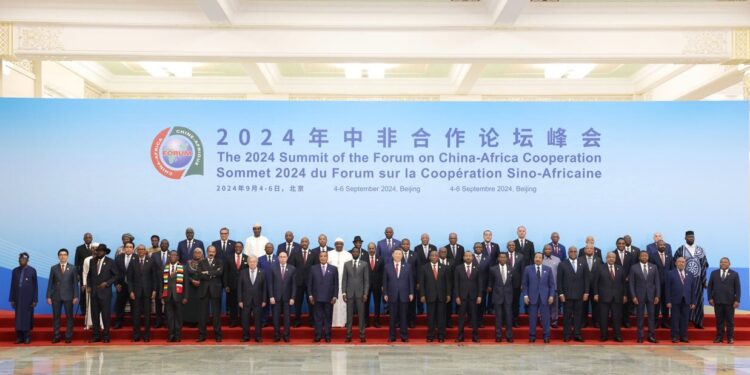The recent Forum on China-Africa Cooperation (FOCAC), held in Beijing, emphasized strengthening economic and developmental ties between China and Africa. With China pledging 360 billion yuan ($50.7 billion) over the next three years, the summit showcased a commitment to Africa’s sustainable growth.
However, to truly unlock Africa’s potential, expanding this cooperation to include global partners is essential. A broader, multilateral approach can ensure Africa’s developmental needs are met more effectively, especially given the continent’s challenges and opportunities.
China’s Historical Role in Africa’s Development
China’s partnership with Africa has deep roots. Since the founding of the People’s Republic of China, the country has played a significant role in African development. One of the most iconic examples of this cooperation is the Tanzania-Zambia Railway, constructed in the early 1970s with Chinese assistance.
Over the decades, China has expanded its focus from infrastructure to more diverse areas such as industrial modernization, agriculture, and green development. The recent FOCAC summit further highlighted renewable energy, health cooperation, and technological innovation as key areas of future cooperation.
- Advertisement -
As at June 2024, China had supported over 120 climate-related projects in Africa and deployed peacekeeping forces in several regions, demonstrating its commitment to the continent’s stability. However, the changing global landscape requires more comprehensive international cooperation to fully realize Africa’s development potential.
The Case for Broader Global Cooperation
Africa is home to the world’s youngest population and abundant natural resources. Despite its rich potential, historical challenges like colonial rule and inadequate infrastructure have stunted the continent’s growth.
As the world’s largest developing economy, China has been a steadfast partner in helping Africa overcome these obstacles. However, the continent’s development cannot solely rely on China. Multilateral cooperation involving Western nations, global institutions, and African governments is crucial for sustainable and inclusive growth.
In recent years, Western countries have initiated new programs to support Africa’s development. For instance, the European Union’s Global Gateway and the United States’ “Build Back Better World” initiative (rebranded as the Partnership for Global Infrastructure and Investment) offer alternative routes for African countries to access investment and infrastructure development. However, political undertones and competitive rhetoric sometimes hinder the efficiency of these programs, as they are often viewed as countermeasures to China’s Belt and Road Initiative (BRI).
The Third-Party Cooperation Model: A Collaborative Approach
To maximize the impact of international aid, a collaborative approach is needed. Instead of competing, China and Western nations could adopt the third-party cooperation model, which encourages joint projects in Africa.
- Advertisement -
This model has already shown promise in ventures such as the operation of the Kribi Deep Seaport in Cameroon, where Chinese and French companies collaborate to benefit Cameroon and neighboring landlocked countries. Similarly, China and Japan have begun exploring third-party cooperation, which could further open opportunities for African development.
Multilateral institutions, such as the Asian Infrastructure Investment Bank (AIIB), also play a critical role in this cooperative framework. The AIIB’s involvement in projects like Egypt’s issuance of a sustainable “panda bond” highlights how international financial institutions can work together to support Africa’s growth.
Cooperation between global institutions and local African governments ensures that development projects align with the continent’s long-term goals and provide sustainable economic benefits.
Green Energy and Technological Innovation: The Future of China-Africa Cooperation
One of the most significant outcomes of the recent FOCAC summit was China’s announcement of 30 clean energy projects across Africa. As renewable energy becomes increasingly important, this focus on green development aligns with both Africa’s needs and China’s goal to expand its renewable technology markets.
Additionally, technological innovation remains a key area of growth, with China and Africa collaborating on projects in 5G, big data, and cloud computing under the Digital Silk Road initiative.
As Africa continues to attract global attention, cooperation must shift from competition to collaboration. Combining China’s experience with Western expertise and the leadership of African nations themselves can create a more effective development model. This collaborative approach will not only benefit Africa but also contribute to global stability and economic growth.










